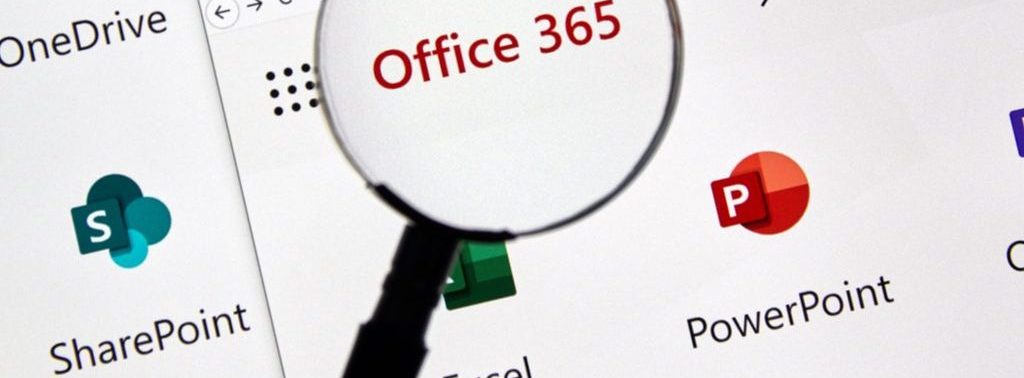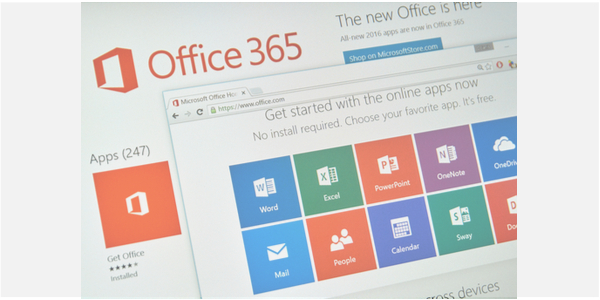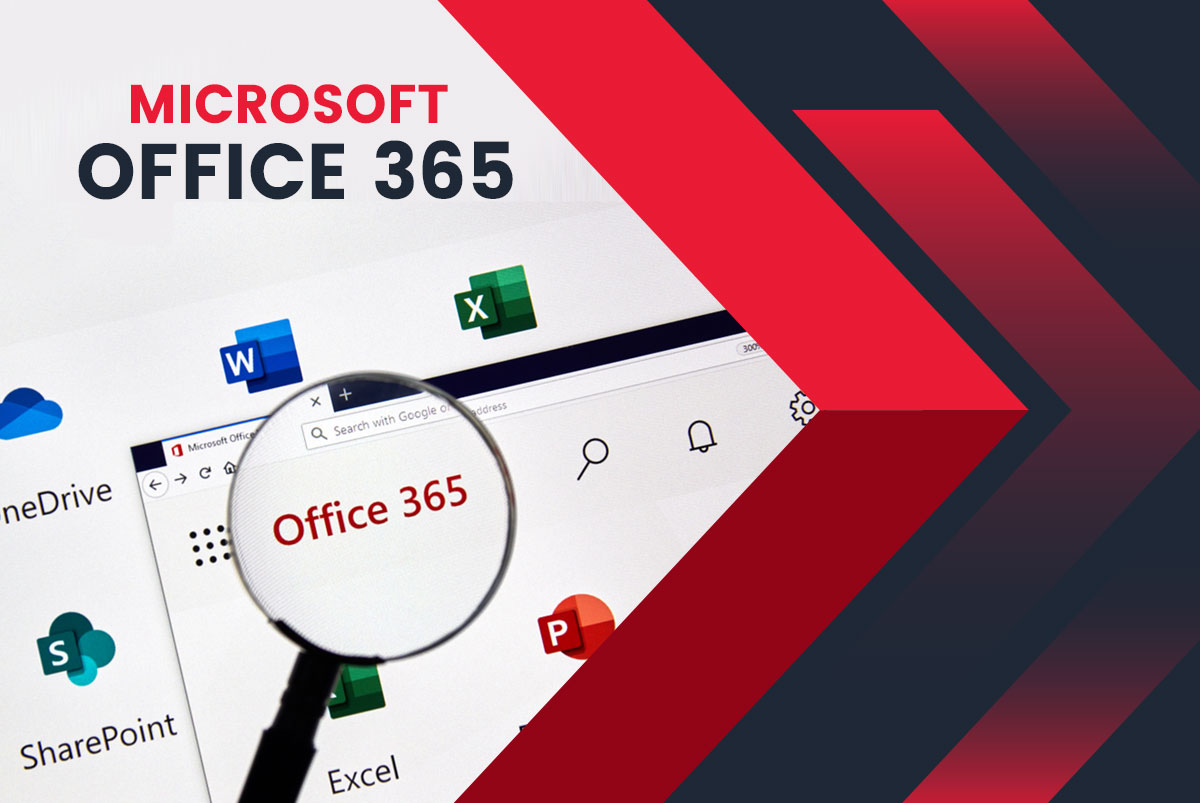Ever since its launch in 2011, Microsoft 365 has been a hot favorite among businesses across industries. The legacy of Microsoft coupled with the wonderful possibilities of the cloud helps Microsoft 365 retain its numero uno position in the enterprise solutions race. Among its plethora of intelligent business applications designed to transform daily operations, Office 365 remains the highlight of Microsoft 365. Both Microsoft 365 and Office 365 are offered in different plans to meet the specific needs of any particular organization. Both the offerings include the cloud-powered Microsoft Office desktop suite along with popular business applications such as Microsoft Exchange Online, SharePoint Online, Office for the web, and Skype for Business Online. Owing to the end-to-end business solutions on offer, a strikingly high number of organizations are opting for Microsoft 365 and Office 365 migration to scale operations.
5 Reasons to migrate to Microsoft 365/Office 365

The tight integration of the tried and tested Microsoft Office applications with the safe and ubiquitously accessible cloud platform helps promote unparalleled business productivity and collaboration.
Here’s is a compilation of the primary benefits of embracing Microsoft 365/Office 365 for organizations
Improved IT infrastructure: Maintaining an outdated work infrastructure not only causes the productivity to plummet but is also a drain on the organization’s overheads. An aging ecosystem usually requires lots of patchworks, frequent overhauls, and long downtimes. When operations are moved to the highly capable Microsoft work environment, the organization gets an array of benefits including reduced dependency on bulky servers and an all-encompassing solution that supports web conferences and high-performance collaborative tools.
Effortless integration with the existing tools: Since a complete migration to the new environment at one go is rare, businesses usually want to retain some functions in their existing system. Microsoft 365 and Office 365 can be seamlessly integrated into the applications of the user’s existing environment. Since most businesses already use Microsoft tools such as Outlook, Office, etc., the integration with the new Microsoft ecosystem is accurate and flawless.
Flexibility and Scalability: The best thing about cloud-hosted enterprise tools is that users can work on the go from any geographic location in the world, with just an internet connection and a device. The round-the-clock mobile access and the solid Microsoft Office 365 support take productivity to the next level by facilitating first-rate collaboration and data exchange. Another argument in favor of Office 365 and Microsoft 365 is their scalability that allows the user to readjust their capability as and when operations scale. At any point in time, the organization pays only for the services it’s using and it also gets the chance to mix and match the app combination to realize further savings.
High Security: The rising instances of data security breaches are giving sleepless nights to the management of even multinational companies. Microsoft 365 and Office 365, being products from the Microsoft stable, are packed with unbreachable digital security that guarantees high-level protection to business data and information. The measures comply with the latest international guidelines to discourage hackers and allow the admin to control file security at a granular level. Also, the chances of unintended data loss have been eliminated by Microsoft.
Migrating email Accounts to Microsoft 365/Office 365
While the decision to embrace Microsoft 365 or Office 365 is a prudent choice that organizations make to streamline operations and cut down on costs, the move demands meticulous planning and careful execution.
For instance, while moving mailboxes and contacts from the exiting environment to Microsoft 365 or Office 365, the organization can get the best outcomes if it chooses to team up with a firm that offers Office 365 migration outsourcing services to its clients. Such a partner can help the organization in creating a blueprint of the migration process while ensuring minimal impact on daily operations.
The vendor will ensure a smooth transfer of the mailboxes and contacts from the client’s Exchange Server or any other IMAP-enabled email system to Microsoft 365.
Migrating Mailboxes and Contacts from Exchange Server to Microsoft 365/ Office 365
A competent Office 365 and Microsoft Office 365 support services provider can plan and execute flawless migration from the on-premises Exchange Server environment to the new Microsoft environment. For organizations to migrate email to Office 365, there are three distinct ways that are explained below. Businesses can opt for the one that best fits their context and experience a smooth transition.
Cutover Migration or Express migration
In this type, the administrator migrates all the mailboxes at once to the new environment. This migration is usually apt if the client is currently running on Exchange 2013, Exchange 2010, Exchange 2007, or Exchange 2003, and the number of mailboxes is fewer than 2000. Although cutover migration allows the administrator to move up to 2000 mailboxes, it is wise to migrate 150 users or less since the time it would take to create and migrate 2000 users would be considerably longer.
Staged Migration
In staged migration, the admin migrates emails to Office 365 in batches and it’s usually practiced if the organization is migrating from Exchange 2003 or Exchange 2007 and the number of mailboxes is fewer than 2000. It must be noted that staged migration can’t be performed to move mailboxes from Exchange 2010 or Exchange 2013 to Office 365 or Microsoft 365.
Hybrid Migration
Hybrid migration is used to maintain both online and on-premises mailboxes and gradually migrate users and data to the new environment. To carry out a hybrid migration, an integrated Exchange Server and Office 365 or Microsoft 365 environment is used. Hybrid migration should be chosen if the organization has Exchange 2010 and over 150-2,000 mailboxes. It is also the apt choice if the client wishes to migrate mailboxes from Exchange 2010 and in small batches over time. Organizations currently running on Exchange 2013 can also go for hybrid migration.
Migrating emails from another Mail System to Microsoft 365/ Office 365
Internet Message Access Protocol (IMAP) can be used to migrate emails from Gmail, Outlook, and other such IMPA-supporting systems. It’s important to bear in mind that when the migration is carried out using IMPA, only the items in users’ inbox or other mail folders can be migrated. This implies that calendar items, contacts, and tasks cannot be migrated using IMAP. Also, the user can’t create mailboxes in Office 365 or Microsoft 365 when migrating through IMAP; therefore, the administrator must create a mailbox for every user before migrating the emails.
Points to Remember before Migrating emails to Microsoft 365/ Office 365 with IMAP
Although IMAP is a convenient tool to migrate emails from other environments to Microsoft 365 or Office 365, the following factors must be considered in the planning phase.
-
Items can only be migrated to a user’s inbox or mail folders and hence, it doesn’t support the migration of contacts, calendar items, or tasks.
-
The maximum number of items that can be migrated from the user’s mailbox is 500,000 and the size of any email to be migrated can’t exceed 35 MB.
-
If the user has limited their connections to their source email system, it’s advisable to increase those for an improved migration performance.
Reasons to Outsource Microsoft 365 and Office 365 Migration Services
Both Microsoft 365 and Office 365 are packed with powerful business functionalities that can transform the way an organization runs its operations. However, to leverage the full capabilities of the new environment, the first step is a well-thought-out and efficient migration strategy. The way the migration is executed determines its success in the long run and the best outcomes can only be realized when the process is handled by specialists. This is why the organization must consider outsourcing Office 365 migration services to a competent service provider with extensive experience.
With the support of a reliable Office 365 migration expert rather than trusting the in-house IT team with limited expertise, the client enjoys the following advantages.
A quality job: There is a significant difference in the outcomes of a complete migration carried out by an expert migration services firm and the one executed by a relatively inexperienced in-house IT team. The internal IT teams of small and mid-sized organizations usually find it overwhelming to migrate emails to office 365 due to the involvement of a vast amount of data, settings, and personalization items. Hence, the chances of missing out on something or the other are high. But with a professional Office 365 migration firm controlling the process, the chances of mistakes are slim since it’s the bread and butter of the company.
Substantial cost benefits: The decision makers of any organization treat ROI as an anchor to decide on any major change to the business operations. Opting for the services of a trusty Microsoft Office 365 migration vendor is a no-brainer in this aspect as it can tailor the Office 365 applications to integrate perfectly into the workflow of the client. A seasoned vendor can deliver significant cost benefits to the client in the form of minimal downtime and configuration issues, thus ensuring zero productivity loss. Also, by outsourcing Office 365 migration services, the client gets the services at a much lesser price than what they would bear if they choose to proceed for the migration with their internal team.
Employee Training and Support: As the new environment would be a massive change for some of the employees in the organization, they must be prepared for this change with adequate training sessions while ensuring zero loss in their productivity. Office 365 migration businesses can help their clients and the employees ride this transition smoothly. They use the right methodology to train the staff on using the most critical features of Office 365/ Microsoft 365 applications and can also provide long-term Microsoft Office 365 support to maintain the environment in its optimum state.
Frees the Management of IT Concerns: When the migration is carried out by the internal team, the management must invest their precious time to oversee the planning and execution of the process. Without a migration expert in charge of this complex process, the risks of data loss are high and the management’s focus on the core areas of the business is diluted. With an external organization in control of the things, the management can significantly cut down on their involvement in the migration process and still expect quality outcomes from the partner. This also allows the internal IT resources to carry out their routine activities without worrying about the complex migration.
Quick Turnaround: Today, most businesses run on tight deadlines and project delays can be caused by system downtime. The level of complexity involved in migrating to Office 365 can cause significant deviations from the original plan, resulting in high inconveniences and loss of business/productivity. Competent Office 365 migration service providers deploy proven methodologies to ensure that the setup and migration projects are executed well within the timeline. Reputed vendors usually deliver on their commitment and stand by their reputation of honoring deadlines.
Modern organizations need modern solutions tailored to their workflows to boost operational efficiency and achieve business growth. By latching on to the abundance of benefits that Office 365 and Microsoft 365 offer, organizations across industries have experienced complete business transformation and a solid platform to scale greater heights.
The primary attraction of Office 365/Microsoft 365 remains the fact that the need for expensive and high-maintenance hardware is zero and users can opt and pay for only the services they need. However, for the migration to be successful in terms of usability, productivity, and ROI, the entire project must be handled by experts. Partnering with professional Office 365 migration outsourcing services gives the client access to the best talents in the business who can help them realize the highest benefits that Office 365 and Microsoft 365 can deliver.
Who We Are and Why Our Expertise Matters?
This article is brought to you by FlatworldEDGE, an IT infrastructure solutions provider specializing in infrastructure management, mobile app development, software testing services, and custom software development. With over 10 years of experience in the industry, we help our clients to cash in on new business opportunities with innovative solutions aligned to their business DNA. As Office 365 experts, we deliver services ranging from implementation and migration to upgrades and support.




